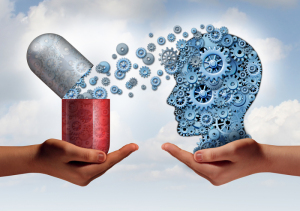by
Thomas Dworetzky, Contributing Reporter | October 17, 2016
It usually takes a couple of years to get the right meds to battle depression in a patient — if they work at all.
But now an approach using fMRI brain scans and personal histories of early life trauma has let researchers determine, with a staggering 80 percent accuracy, if antidepressants will help a depressed person or not.
“We think our results are especially strong because we demonstrated that accuracy is robust by confirming it with cross-validation techniques,” Stanford University School of Medicine's Professor Leanne Williams,
told the medical school's Scope.



Ad Statistics
Times Displayed: 137004
Times Visited: 7945 MIT labs, experts in Multi-Vendor component level repair of: MRI Coils, RF amplifiers, Gradient Amplifiers Contrast Media Injectors. System repairs, sub-assembly repairs, component level repairs, refurbish/calibrate. info@mitlabsusa.com/+1 (305) 470-8013
The impact of these findings could be huge. “Right now in America, and globally, depression is the number one cause of disability,” she explained to Stanford's 1:2:1 podcast.\
The toll it takes on families, employers and society, she called “staggering.”
The Holy Grail, she stressed, has been to find a method to move from a 2-3 year trial-and-error process “to getting the treatment right the first time.”
Key to determining whether drugs can help is an fMRI scan of the brain, with specific focus on the amygdala, which can have both its structure and function changed by childhood trauma.
“For those whose amygdala is affected by early life stressors, they have different ways of responding to treatments and perceiving the world,” lead author of the study Andrea Goldstein-Piekarski, Ph.D., said in a release about the study, which was published in the
Proceedings of the National Academies of Science.
One example of this is that an individual abused in childhood may end up with a “hyper-vigilant” amygdala that reacts hyper-sensitively to negative emotions.
“Unfortunately, sometimes the amygdala maintains this hypersensitive trajectory in later life, but it changes slightly,” according to Goldstein-Piekarski. “As an adult, they lose out on that ability to respond to the more positive emotions.”
The study of the so-called “emotional brain” with fMRI allowed the researchers to actually quantify the impact of such childhood trauma. They found that those whose brain retained a good response to positive emotions stood a better chance of responding well to antidepressants.
Scans were done using a GE Healthcare 3.0-T Signa HDx scanner with an eight-channel head coil and an echo-planar imaging (EPI) sequence, according to the journal paper.
“For those patients who have lost this capacity, putting them down an antidepressant path is likely to cause more heartache,” Williams said. “That’s when you would consider other types of treatment. First, treat the effects of the childhood trauma through methods such as trauma-informed psychotherapy, and then consider antidepressants.”
The impact of these findings has led these researchers to envision an approach to depression that could include a quick brain scan as part of the initial diagnosis.
“If we are thinking about trying to get this right the first time, it’s useful to consider the option of ordering a scan,” Williams said. “It’s already done for so many other things — a broken leg, a heart problem, a potential tumor.”
The researchers worked with roughly 200 primary care providers during the study and noted that the idea of a brain scan is appealing to these frontline diagnosticians. “They want to know who is likely to benefit from antidepressants, and when they should refer to specialist psychiatric services including psychotherapy. Currently, there is nothing to help them make that decision.”

